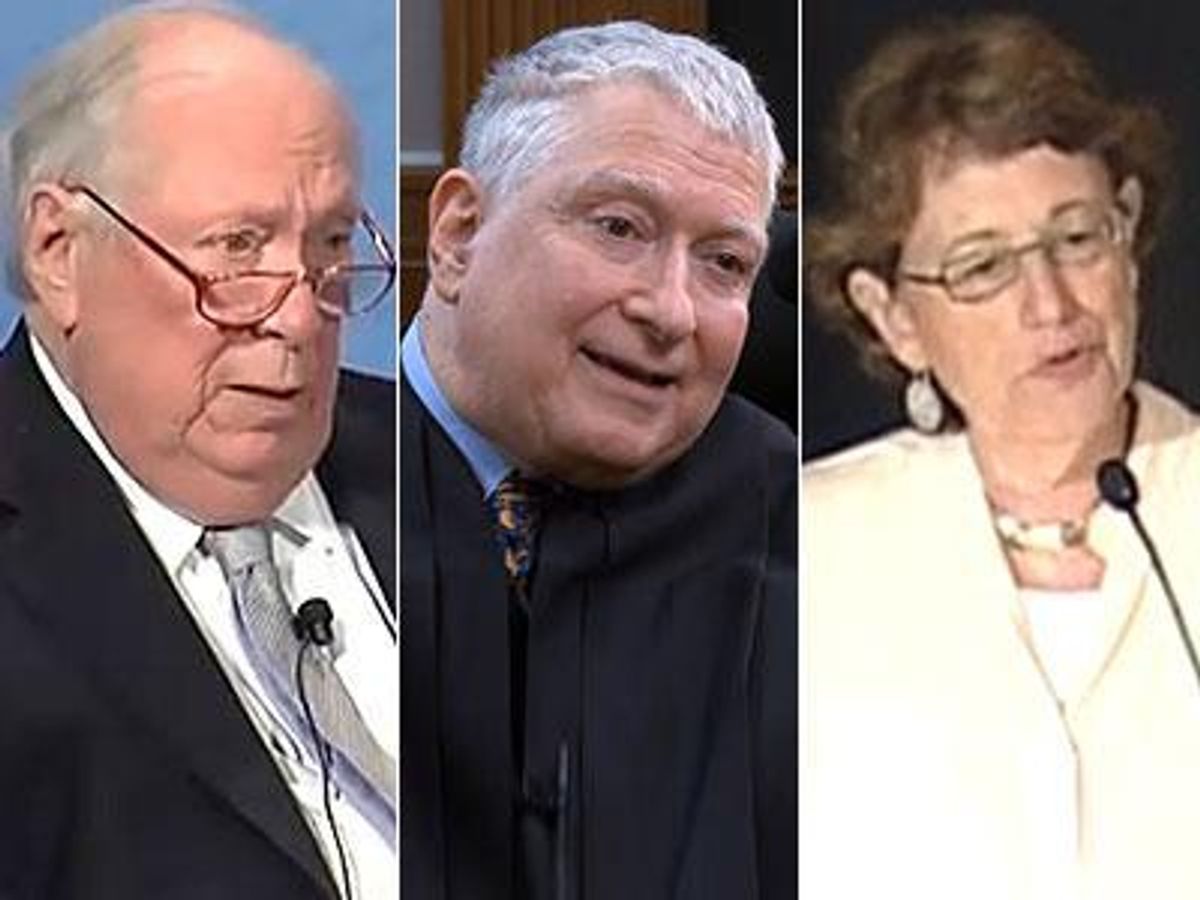A federal appeals court Tuesday struck down bans in both Nevada and Idaho on marriage rights for same-sex couples, and the effect of that decision could spread to other states.
The three-judge panel of the U.S. Circuit Court of Appeals for the Ninth Circuit ruled today that those state's bans violated the Equal Protection Clause of the 14th Amendment in the U.S. Constitution, the Associated Press reports. The ruling follows Monday's decision by the U.S. Supreme Court not to hear seven cases regarding marriage equality affecting 11 states.
Nevada congresswoman Dina Titus urged Secretary of State Ross Miller "to move swiftly so same-sex couples who have waited to celebrate their commitment in front of their families and friends in their home state can do so without delay," in a statement shortly after the decision was issued.
Montana, Alaska, and Arizona, which are also under the Ninth Circuit's jurisdiction and have marriage bans in place, are not immediately affected by today's ruling, but officials in those states could interpret the ruling to also grant marriage rights to same-sex couples. That's what happened in Colorado after the 10th Circuit appeals court ruled that Utah's marriage ban is unconstitutional. Some Colorado county clerks began issuing marriage licenses, saying the decision applied to them, only to be stopped later when a court intervened.
LGBT activists including Evan Wolfson, president of Freedom to Marry, cheered the decision, though they don't all agree on how many states have marriage equality. Freedom to Marry counts the other states in the Ninth Circuit, which would bring the total to 35.
"We now have more states that have ended the exclusion of gay couples from marriage than had ended bans on interracial marriage when the Supreme Court brought the country to national resolution in Loving v. Virginia," notes Wolfson. "We hope that the other federal appellate courts will move swiftly to end the disparity and unfair denial that too many loving and committed couples in the 15 remaining states endure."
The Nevada case had originally been a rare win for the anti-marriage equality side, with U.S. District Judge Robert C. Jones ruling in 2012 in the case Sevcik v. Sandoval that added scrutiny isn't necessary for laws classifying people based on their sexual orientation.
Then when judges Stephen Reinhardt, Ronald M. Gould, and Marsha S. Berzon of the Ninth Circuit heard the case in September, their questioning seemed skeptical of antigay arguments.
Representing the antigay Coalition for the Protection of Marriage, Idaho attorney Monte Stewart, who is defending both the Nevada and Idaho laws, didn't fare well during the hearing. If gay and lesbian parents could marry, he argued for example that "the men socialized by that new and different marriage institution will weaken in their commitment to abide by the child's bonding norm."
Judge Berzon responded, "Has that happened in Massachusetts? ... My understanding is no."
Reinhardt asked, "What about divorce -- does Idaho prohibit divorce because it sends a bad message?"
The Idaho case was brought in November 2013 by four same-sex couples: Sue Latta and Traci Ehlers, Lori and Sharene Watsen, Shelia Robertson and Andrea Altmayer, and Amber Beierle and Rachael Robertson. That case was consolidated with Sevcik v. Sandoval, which challenged Nevada's marriage ban.
In November 2012, Sevcik was partially dismissed by the trial court and was then appealed to the U.S. Court of Appeals for the Ninth Circuit. In early 2014, Nevada Attorney General Catherine Cortez Masto and Gov. Brian Sandoval announced they would no longer defend the state's marriage ban, saying it wasn't possible to win, and so an anti-equality organization called the Coalition for the Protection of Marriage intervened in defense of the ban.


















































































Viral post saying Republicans 'have two daddies now' has MAGA hot and bothered